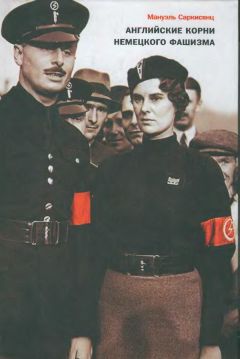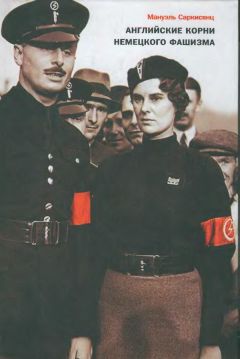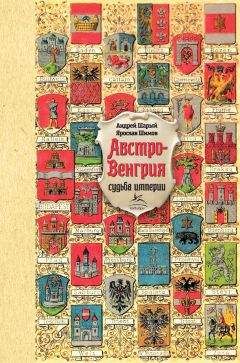910
Лесина Винсент Бернард Джозеф (1870–1955) — австрал. полит. деятель и журналист.
Janine Roberts, Nach Volkermord Landraub, S. 27.
A. G. L. Shaw, The Story of Australia (London, 1960), p. 23.
W. Hirst & Murray & J. L. Hammond, Liberalism and Empire (London, 1900), p. 153–1 54.
Лумхольц Карл Софус (1851–1922) — норвежский путешественник, натуралист и этнограф, исследователь Австралии, Мексики, Индонезии.
W. Ziehr, Holle im Paradie, S. 53.
H. Reynolds, Other side of Frontier, p. 17; Janine Roberts, Nach Volkermord Landraub, S. 33.
Ошибочно проставленая метка сноски (предыдущая или эта):
H. Reynolds, Other side of Frontier, p. 17; Janine Roberts, Nach Volkermord Landraub, S. 33.
Ibid., S. 30f.
CSIRO (Commonwealth Scientific and Industrial Organisation) — государственная организация научных и прикладных исследований.
Ibid., S. 51.
Vgl. Lewis Hanke, Colonisationet conscience chretienne au XVIe siecle (Paris, 1957?), p. 120f; G. V Lantzeff, Russian colonial policy… with special reference to Siberia (Dissertation, Berkeley, USA, 1938 typescript), p. 161, 164; Sarkisyanz, Geschichte der orientalischen Volker Russlands bis 1917. Eine Erganzung zur ostslawischen Geschichte (Munchen, 1961), S. 397.
Kiernan, Lords of Humankind, p. 268.
Ibid., quotes G. Parsons, Black Chattels (n. p., 1946), p. 11.
Gareth Stedman Jones, Language of Class. Studies in English Working Class history (1938), p. 233; Heather Goodall, «Authority under challenge. Picampul Land and Queen Victoria's Law during the British invasion of Australia», in: Daunton and Halpern (Editors), Empire and Others. British encounters with indigenous peoples 1600–1850 (London, 1999), p. 273; H. Reynolds, The other side of the Frontier, p. 148; R. Symonds, Oxford and Empire (Oxford, 1991), p. 222f; Gustav Warneck, Abriss einer Geschichte protestantischer Missionen (Berlin, 1900), S. 96, 352.
Benjamin Kidd, Soziale Evolution. Deutsche Ubersetzung (Jena, 1895), S. 141, 153fY.
H. G. Wells, «Faith, morals and public policy of the New Republic» (1902); Wells, «Race in Utopica: Modern Utopia…. (1905): Wells, Works. Atlantic Edition, МЫ IV (London, 1924), p. 274.
Kiernan, Lords of Humankind, p. 268.
Cart Peters, Vermachtnis, S. 52.
Hans Grimm, Englische Rede. Wie ich die Englander sehe (Gutersloh, 1938), S. 30.
American Historical Review, СП, Nr. 1 (February 1997), p. 124.
Hermann Joseph Hiery, Das Deutsche Reich in der Sudsee 1900–1921 (Gottingen, 1995), S. 315.
Зольф Вильгельм Генрих (1862–1936) — нем. гос. деятель и дипломат: 1900–1911 гг. — губернатор Самоа, 1911–1918 гг. — статс-секретарь по делам колоний, 1918 г. — статс-секретарь по иностр. делам (при Максе Баденском), 1920–1928 гг. — посол в Японии.
Ibid., S. 54, 41f, 45–48.
Henry Picker (Hrsg.), Hitlers Tischgesprache (1963), S. 143: 8./9. September 1941; Пикер… С. 37.
Adolf Hitler, Monologe im Fuhrerhauptquartier 1941–1944. Die Aufzeichnungen von Heinrich Helms, herausgegeben von Werner Jochmann (Hamburg, 1980), S. 337: 11. August 1942.
Ibid., S. 27.
Ibid., S. 289: 22. Februar 1942.
Ibid., S. 128: 5. November 1941.
Ibid., S. 91: 17. Oktober 1941.
Kiernan, Lords of Humankind, p. 268.
Hitler, Monologe, S. 91: 17. Oktober 1941.
Ibid., S. 377: 29. August 1942.
Charles Wenworth Dilke, The Greater Britain (London, 1894), p. 535.
A. Hillgruber, «Ein Vfolk, ein Reich, ein Fuhrer. Pervertierung des Nationalgedankens»: Die Neue Ordnung, Nr. 39 (1985), S. 49, zitiert bei Klaus Hildebrand, Das vergangene Reich. Deutsche Aussenpolitik von Bismarck bis Hitler (Stuttgart, 1995), S. 750.
G. R. Uberschar & Wette (Hrsg.), Unternehmen Barbarosa. Der deutsche Uberfall auf die Sowjetunion (Paderborn, 1990), S. 192.
Carl Peters, ermachtnis, S. 62f; R. Symonds, Oxford and Empire, quoting Lord A. P. Rosebery. Questions of Empire (London, 1900), p. 13.
Hitlers Zweites Buch = Institut fur Zeitgeschichte, Quellen und Darsteilungen zur Zeitgeschichte, Band VII (1961), S. 78; Strobl, The Germanic Isle, p. 94.
Carl Peters, Vermachtnis, S. 40f.
Drascher, Vorherrschaftderweissen Rasse, S. 209.
Andrew Rutherford, «Officers and Gentlemen», in: Rutherford, Kipling. Mind and Art (Edinburgh, 1964), p. 185, quoted in: Allen J. Greenberger, The British Image of India. A study in the literture of Imperialism 1880–1960 (Oxford, 1969), p. 20.
Hitler, Monologe, S. 151: Nacht vom 1. auf 2. August 1941.
В мещанском понимании слово «порядочный» (reinlich) — вовсе не обязательно означает нравственно чистый (прим. автора).
Hans Grimm, Die dreizehn Briefe aus Deutsch-Sudwestafrika (Munchen, 1928), S. 13; Carl Peters, Was lehrt uns die englische Kolonialpolitik? (Berlin, 1897); James Anthony Froude, Oceana or England and her Colonies (London, 1886), pp. 8f.
David Schoenebaum, Hitlers social revolution. Class and status in Nazi Germany 1933–1939 (New York, 1980), p. 279.
Hermann Rauschning, Gesprache mit Hitler (Zurich, 1940), S. 39,44,41; Ср.: Payiu-нинг. С. 42, 45; Tim Jeal, Baden-Powell (New Haven, 1995), p. 418.
Himmler, Geheimreden, S. 142: Ansprache vom 29. Februar 1940.
Hitlers Zweites Buch = Institut fur Zeitgeschichte, Quellen und Darsteilungen zur Zeitgeschichte, Band VII (1961), S. 156.
Hitler, Monologe, S. 196: 12./13. Januar 1942.
Ibid., S. 311ff: 3. Marz 1942.
Ibid., S. 48: 27. Juli 1941.
Rauschning, Gesprache mit Hitler, S. 39ff; Ср.: Раушнинг. С. 45.
Ibid., S. 39–40.
Нана Сахиб сыграл важную роль в индийском мятеже 1857 г., явился организатором массового убийства британских (гражданских) подданных (прим. автора).
Symonds, Oxford and Empire (1991), quoting Edwin Arnold, Education in India (London, 1860), pp. 6, 8.
Mack, Public School, p. 42.
Речь идет о книге Фрэнсиса Джона Белью «Воспоминания гриффина, или Первый кадетский год в Индии» (Bellew F. J. Memoirs of a Griffin; or, a Cadet's first year in India. London. 1843). Гриффин (англ.) — европеец, недавно прибывший в Индию.
Dennis Kincaid, British social life in India (London, 1973), p. 149; F. Hutchins, Illusion of Permanence, pp. 43f.
D. R. Pearn, History of Rangoon (Rangoon, Burma, 1939), p. 203.
Форстер Эдвард Морган (1879–1970) — англ. романист.
Francis Hutchins, The Illusion of Permanence, p. 43f; Ср.: Форстер Э. M. Поездка в Индию /пер. В. Исакова. Л.: Худ. литература. 1937. С. 36.
Greenberger, British image of India, p. 26.
Charles Dilke, Greater Britain (London, 1885), p. 554.
R. Cecil, The Myth of the Master Race, p. 146, 147.
Francis Hutchins, Illusion of Permanence, pp. III, 112; cf. ZiaSardar& AshisNandy & Meryl Wyn Davies, Barbaric Others. A manifesto on Western Racim (London, 1993), pp. 75f.
Alain Cairns, Prelude to Imperialism, pp. 114, 108, 118; Christine Bolt, Victorian attitudes to Race (London, 1971), p. 146; Bill Schwarz (Editor), Expansion of England. Race, ethnicity and cultural history (London, 1996), p. 136; Lewis Wurgaft, The Imperial Imagination. Magic and Myth in Kipling's India (Middletown, Conn., USA, 1983), p. 19; The 'manly Englishman' and the 'effeminate Bengali' in the Late 19th centure (New Delhi, 1995), pp. 41, 124; Kincaid, British social life in India, S. x; A. J. Greenberger (wie Anm. 26), S. 48; Martin Daunton and Rick Halpern (Editors), Empire and Others. British encounters with indigenous peoples 1600–1850 (London, 1999), p. 20.
Benita Parry, Delusions and discoveries. Studies on India in the British imperial imagination 1880–1930 (London, 1972), p. 32.
Ibid., p. I24f, zitiert F. A. Steel, Law of the Treshold (1914), S. 293; Lewis D. Wurgaft, The Imperial imagination, Magic and Myth in Kipling's India (Middletown, Conn., USA, 1983), p. 19.
Parry, Delusion, p. 4, zitiert J. R. Ackerley, Hindu Holiday. An Indian journey (1952), p. 23f.
Francis Hutchins, The Illusion of Permanence, p. 154, 155.
Reginald Reynolds, The White Sahibs in India (1937), p. 275.
Greenberger, British image of India, p. 18.
Kincaid, British social life in India, p. xvii.
Parry, Delusions, p. 123.
Ibid., p. 4.
Псевд.: Флора Энни Уэбстер (1847–1929) — романистка.
Ibid., p. 121 with reference to Flora Annie Steel, On the Face of the Waters (London, 1897), p. 60.
Lewis Wurgaft, The imperial imagination. Magic and Myth in Kiplings India (Middletown, Conn., USA, 1983), p. 49.
Alfred Rosenberg, Mythus des zwanzigsten Jahrhunderts. Eine Wertung der seelisch-geistigen Gestaltenkampfe unserer Zeit (Munchen, 1941), S. 212, 214.
Ernst Klee & Willi Dressen, «Gott mit uns». Deutscher Vernichtungskrieg im Osten, S. 222.
Hitler, Monologe, S. 403, mit Hinweis des Herausgebers auf: Christa Schroeder, Er war mein Chef. Aus dem Nachlass der Sekretarin von Adolf Hitler. Herausgegeben von Anton Joachimsthaler (Munchen, 1985), S. 113.





